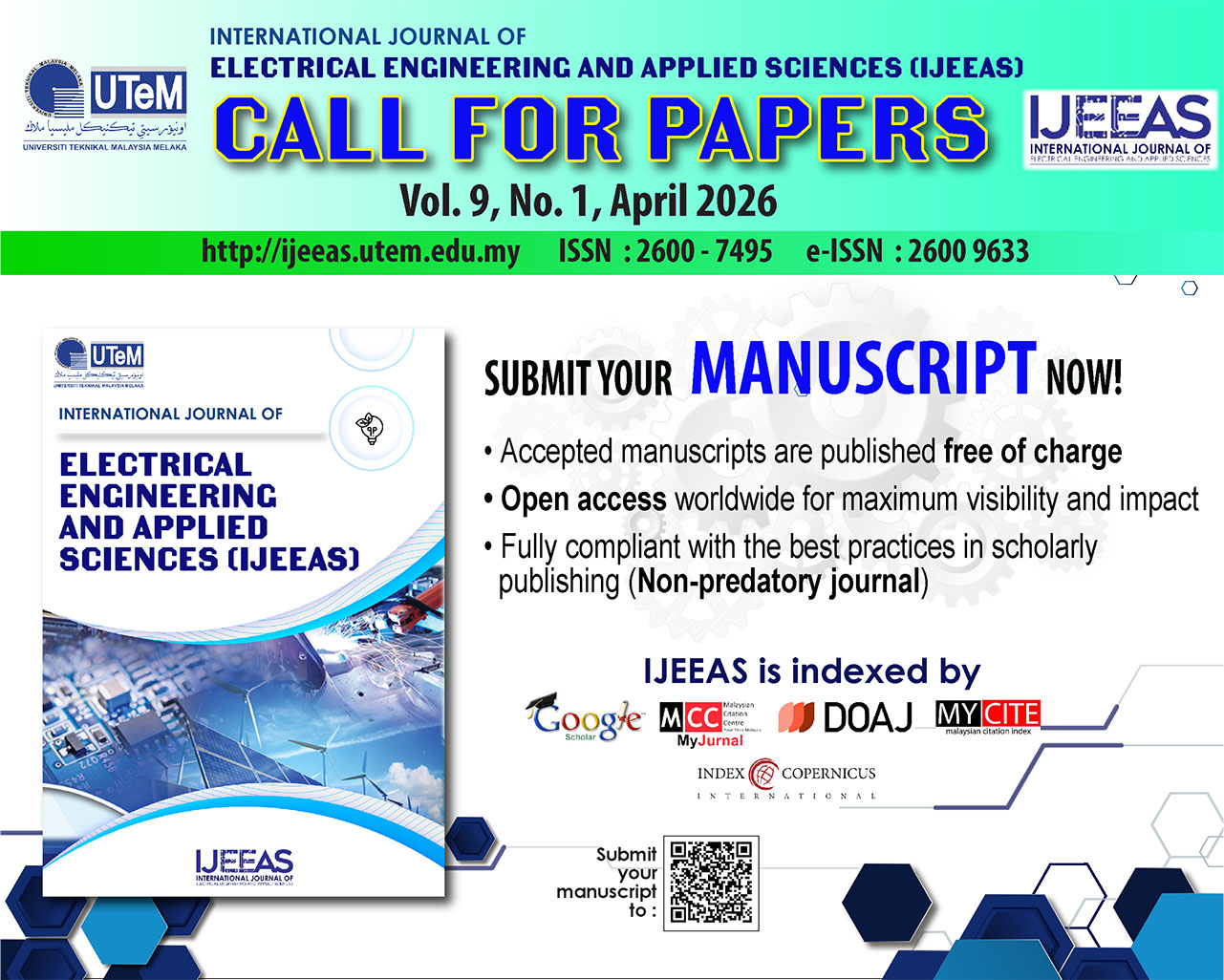Simple MPPT Technique for DC-DC Converter In Fuel Cell System
Abstract
This paper presents the simulation of fuel cell mathematic model interfaced with DC- DC boost converters. The drawbacks of the fuel cell stack are that it lacks maximum power to generate the suitable application and high input current ripple. So, the maximum power point tracking (MPPT) technique of voltage constant controller is implemented to the system to extract the maximum power from the fuel cell. The MPPT technique forces the fuel cell to meet the maximum power that the fuel cell can generate. This MPPT method increases the efficiency of power delivered from the fuel cell. The benefits of the converter chosen are the interleaving technique used in converter reduced the current ripple that could damages the fuel cell stack. The converters chosen is the conventional dc boost converter and interleaved boost converter that will be simulated along with the MPPT algorithm in MATLAB/Simulink environment. The interleaved boost converter has also chosen for its advantages of reduction of passive component's size, as well as reduced the current ripple. It is proved that the MPPT method of constant voltage gives a stable and linear performances in designing a high efficient fuel cell system.
Downloads
Downloads
Published
How to Cite
Issue
Section
License
Authors who publish with this journal agree to the following terms:
- Authors retain copyright and grant the journal right of first publication with the work simultaneously licensed under a Creative Commons Attribution License that allows others to share the work with an acknowledgement of the work's authorship and initial publication in this journal.
- Authors are able to enter into separate, additional contractual arrangements for the non-exclusive distribution of the journal's published version of the work (e.g., post it to an institutional repository or publish it in a book), with an acknowledgement of its initial publication in this journal.
- Authors are permitted and encouraged to post their work online (e.g., in institutional repositories or on their website) prior to and during the submission process, as it can lead to productive exchanges, as well as earlier and greater citation of published work (See The Effect of Open Access).







